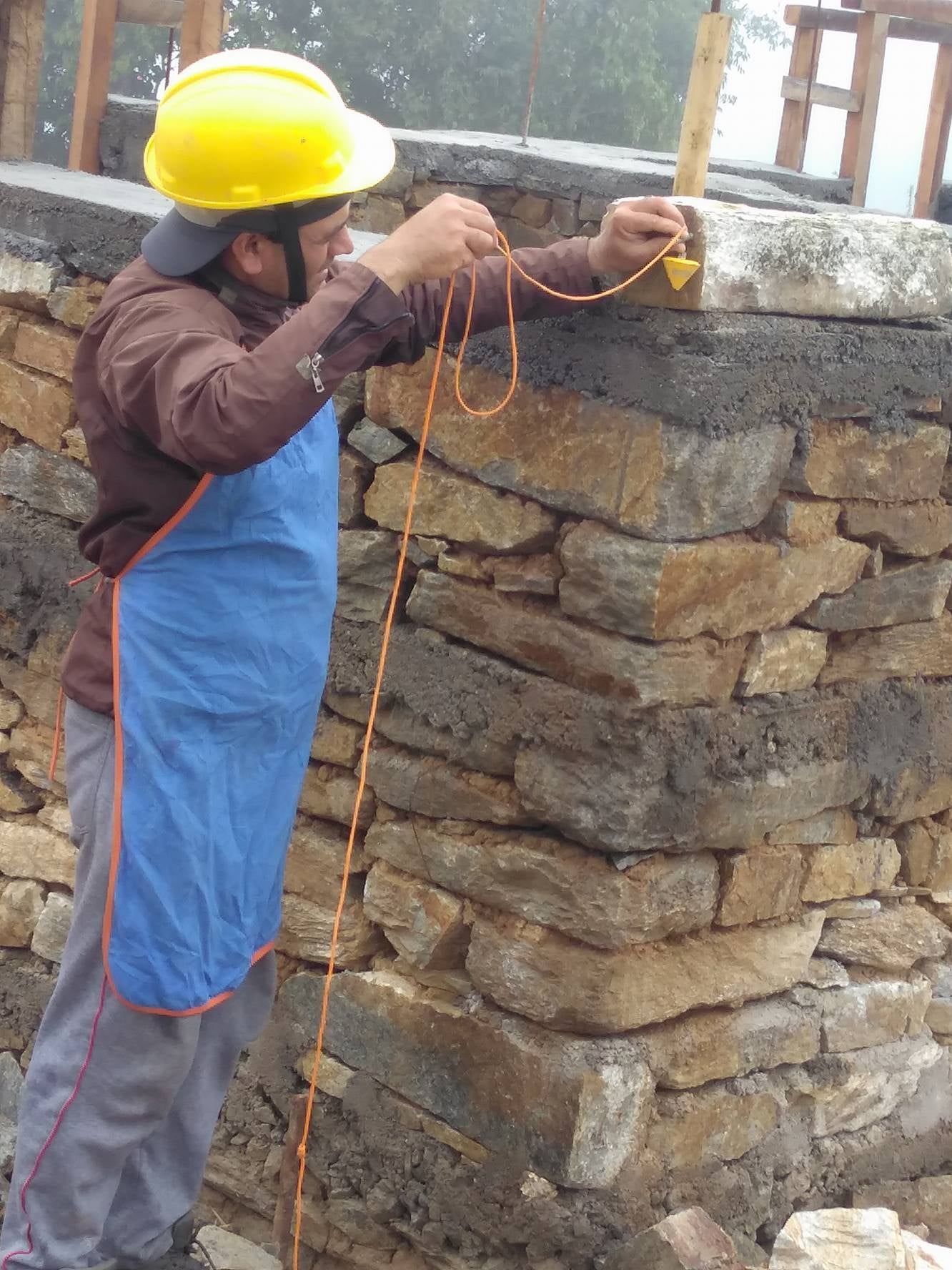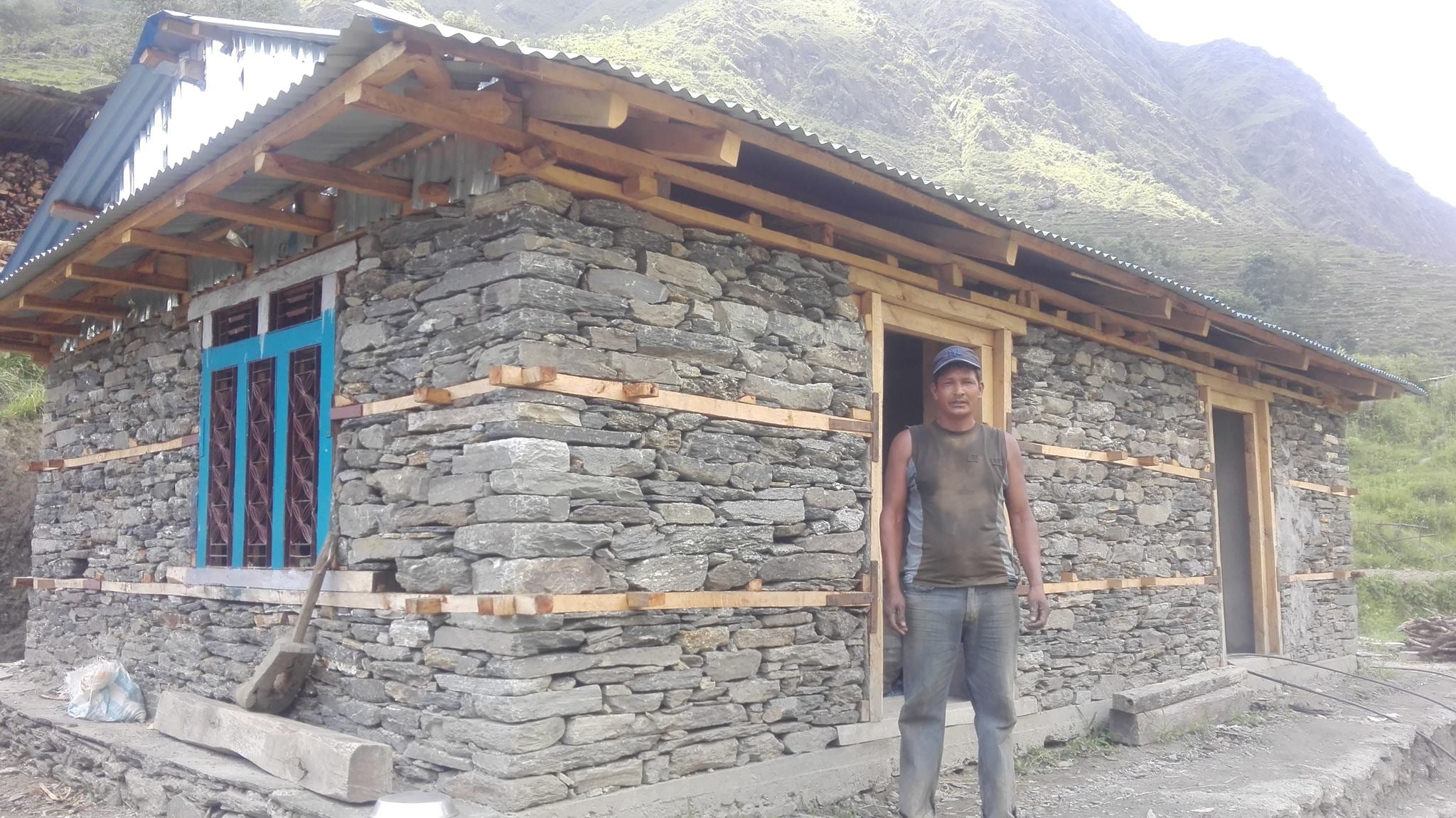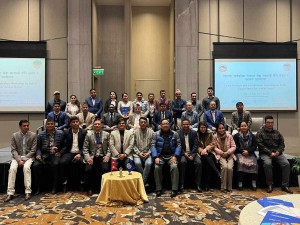
Skills for Safe Reconstruction Project (SSRP)- Swisscontact

Action for Development (AfD) has been leading multiple rehabilitation efforts in Nepal, following the devastating earthquake in April 2015. The disaster underscored the urgent need for construction workers skilled in earthquake-resilient building techniques. Responding to this critical demand, the Swisscontact-Swiss Foundation for Technical Cooperation, in collaboration with the Skills for Safe Reconstruction Project (SSRP). They introduced two innovative 50-day onsite training programmes: The Skills for Reconstruction Project in 2015 and 2016 and The Reconstruction Skills Project in 2017.
This comprehensive training program was designed to provide hands-on experience in earthquake-resilient construction methods. Action for Development played a pivotal role by conducting the 50-day On-The-Job Mason training, adhering to the curriculum set by the Council for Technical Education and Vocational Training (CTEVT) in Nepal. This training was provided to 370 participants, equipping them with the essential skills needed for safe and resilient construction. Additionally, a further nine days of skill upgrading training for 360 participants, and seven days of Timber Frame Structure Skill upgrading training were provided to 60 more participants.
As part of this initiative, 70 houses were constructed in the Sindhuli district to support the victims of the earthquake. The training program's success was reflected in the high participation and completion rates. Out of the 370 total participants, 360 of them appeared for the CTEVT skill test, and an impressive 88% secured employment in the construction sector following their training.
The positive impact of this training on society has been substantial. Firstly, it has significantly contributed to the reconstruction efforts by providing the necessary skilled labor to rebuild homes and infrastructure. The new earthquake-resilient homes not only offer safer living conditions but also instill a sense of security among the residents.
Moreover, the training program has empowered individuals by providing them with valuable skills that enhance their employability. The high employment rate of 88% among the trainees is a testament to the program's effectiveness in creating sustainable livelihoods. These skilled workers are now contributing to the local economy, supporting their families, and fostering community resilience.
The success of the training program also highlights the importance of practical, hands-on training and the collaboration between international organizations and local institutions. The structured approach, following the CTEVT curriculum, ensured that the training was of high quality and met national standards. The additional skill upgrading sessions further enhanced the participants' abilities, making them more versatile and competent in various construction techniques.
Overall, Action for Development's efforts have not only addressed the immediate need for reconstruction but have also laid a foundation for long-term resilience and economic growth in the affected regions. The training program stands as a model for effective disaster response and capacity building, showcasing how targeted education and skill development can lead to tangible improvements in community well-being and stability.
only addressed the immediate need for reconstruction but have also laid a foundation for long-term resilience and economic growth in the affected regions. The training program stands as a model for effective disaster response and capacity building, showcasing how targeted education and skill development can lead to tangible improvements in community well-being and stability.



1716882354.jpg)
